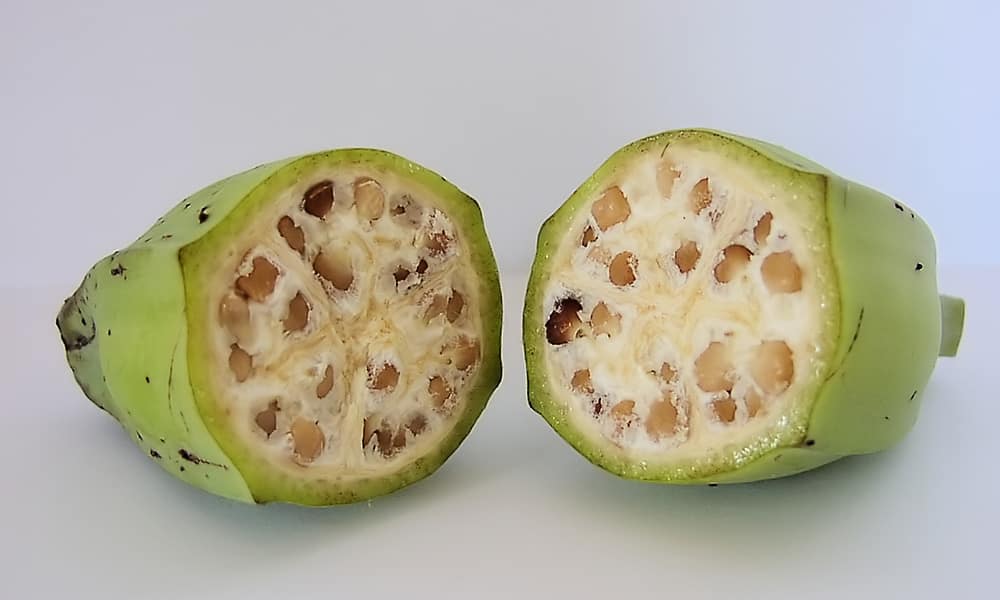Wild bananas rate high on the list of exotic plants for tropical gardeners who enjoy collecting unusual and attractive ornamentals for the garden. Of the more than 70 species of the banana family, Musa, wild bananas represent some of the earliest and most primitive forms. These unique plants have brilliant red or pink bracts of flowers that produce inedible bananas.
It’s curious to note that the mature fruits contain large, black, fertile seeds, which can be planted to propagate new wild bananas. This is in contrast to domestic bananas, which contain tiny, infertile seeds you can closely observe in the center of the pulp.
It seems that as bananas evolved over the millennia, they began to rely more and more on asexual reproduction, generating clone-like offshoots arising from the underground rhizome.
Meanwhile, for some evolutionary reason (climate, perhaps), sexual reproduction took the back seat, and the seeds became inconspicuous, infertile dots in the bananas we know today. Many tropical plants have developed this same mode of vegetative reproduction, including aloe vera, taro, sweet potato, cassava and ginger.
Actually, wild bananas utilize both forms of reproduction. Leading nurseries in the country that offer bananos silvestres (wild bananas) usually propagate hijos, or vegetative offshoots, but commercial seed companies offer wild banana seeds, as they can be sent around the world by mail.
Wild bananas lend an air of the tropics to any ornamental garden, particularly small home lots with limited space. They can be planted in full sun or partial shade, along walls or walkways, and combine well with palms and ferns.
Wild bananas are much like heliconias in appearance and can be used in much the same way in landscaping designs. These plants like moist, fertile soil fortified with organic compost fertilizer, which will keep them healthy and growing well.
Older stalks can be pruned away once they begin to dry up, and the offshoots can be dug up and transplanted to new sites. Apart from this, they are hardy plants that require little attention or maintenance.
Occasional cases of leaf disease, such as Panama wilt, can be dealt with using a citrus seed-oil extract known as KILOL, which is available in most agricultural supply centers here. Many nurseries in the country offer wild banana plants in containers, but you can also keep an eye open for wild bananas in your neighborhood. Ticos are usually more than willing to share hijos from their garden plants.
I’ve also found that proposing a trade of garden plants is a nice way to approach someone when asking for cuttings or plants. It’s a great way to strike up friendships with the locals.






